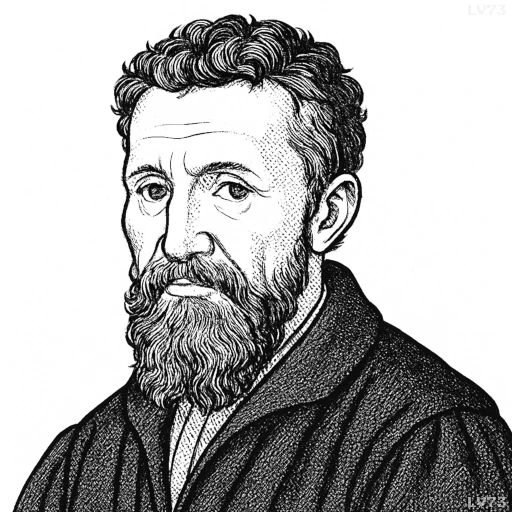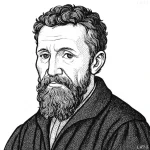“The promises of this world are, for the most part, vain phantoms; and to confide in one’s self, and become something of worth and value is the best and safest course.”

- March 6, 1475 – February 18, 1564
- Born in the Republic of Florence (now Italy)
- Sculptor, painter, architect, poet
table of contents
Quote
“The promises of this world are, for the most part, vain phantoms; and to confide in one’s self, and become something of worth and value is the best and safest course.”
Explanation
In this quote, Michelangelo expresses a profound skepticism toward the fleeting and unreliable nature of worldly promises and achievements. He warns against placing trust in external forces, such as fame, wealth, or power, which are often transient and deceptive (“vain phantoms”). Instead, he advocates for self-reliance and the pursuit of inner worth, suggesting that the true measure of success and security comes from developing one’s own character and value through hard work, discipline, and personal growth. The idea that one should “confide in oneself” emphasizes self-confidence and the belief that personal worth is cultivated from within, rather than depending on the unstable rewards offered by the world.
This perspective reflects Renaissance humanism, which placed emphasis on the individual, self-expression, and the potential for human achievement through personal effort. Michelangelo, whose works were often centered around themes of human dignity and inner strength, believed that true greatness comes from within, through self-mastery and the pursuit of one’s personal and artistic ideals. The quote can also be interpreted as a rejection of materialism and the superficial aspects of society, which remain relevant today in conversations about the transient nature of wealth and success in modern consumer culture.
In modern times, this quote resonates with the notion of intrinsic motivation, which focuses on personal growth and fulfillment rather than external rewards. For example, entrepreneurs and artists often speak about the importance of pursuing one’s passions and values, even when external recognition is uncertain. Similarly, self-help literature encourages individuals to look inward for strength and to rely on their own abilities and determination to navigate life’s challenges. Michelangelo’s words offer a timeless reminder that the most reliable source of strength and security lies not in the promises of the world, but in one’s own character and efforts.
Would you like to share your impressions or related stories about this quote in the comments section?


